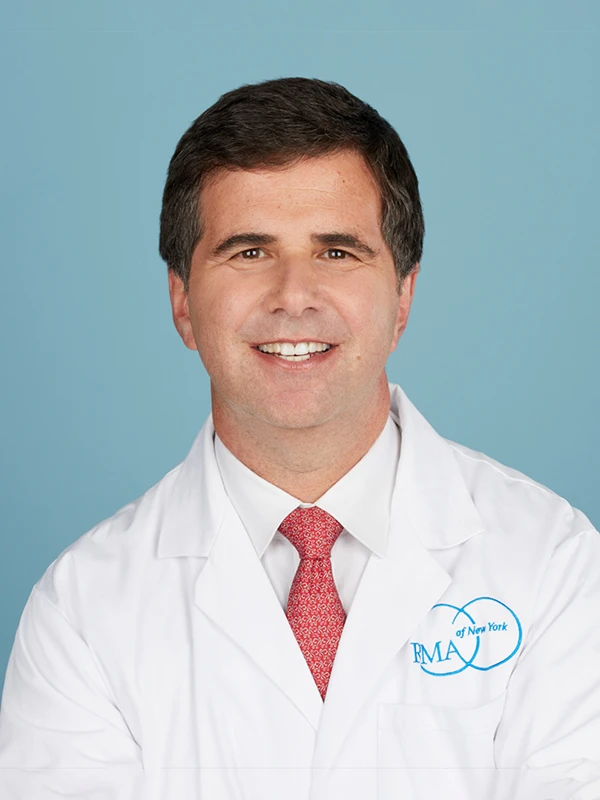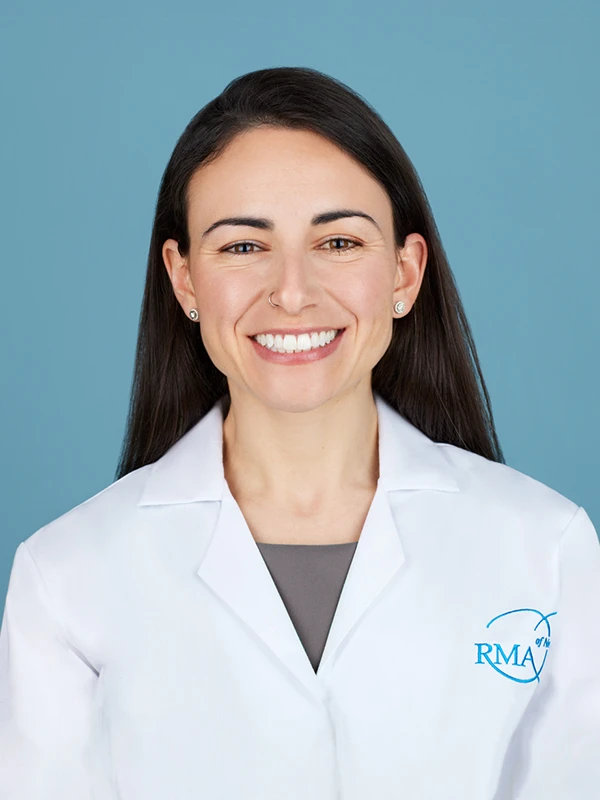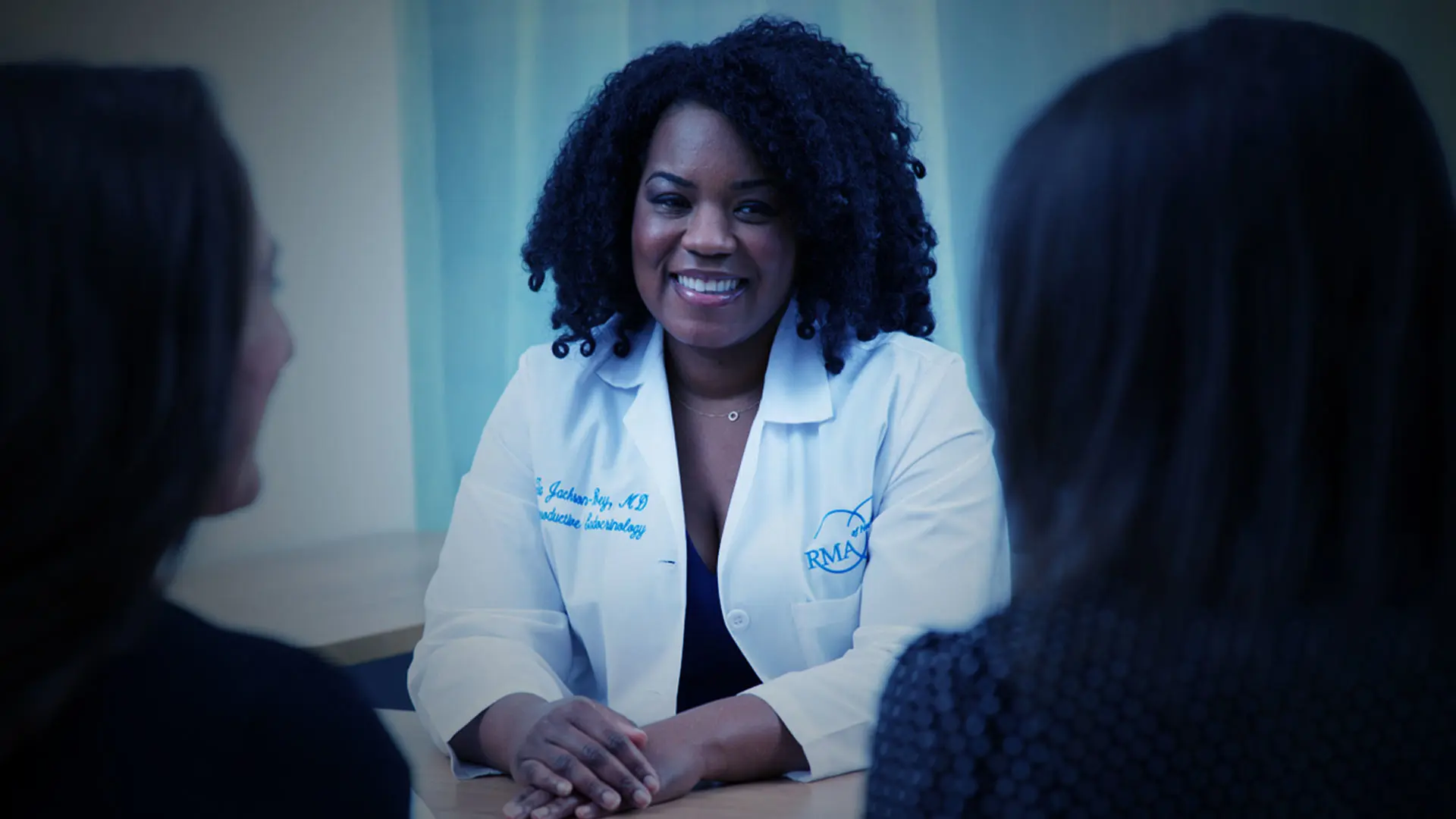Same-sex couples and LGBTQ+ people face unique challenges in their pursuit of building a family. Mount Sinai, in partnership with Reproductive Medicine Associates (RMA) of New York, offers a range of options informed by research and a commitment to health equity and inclusion. “We use science and data to drive high success rates and optimal outcomes. Our compassion and heart create an accessible and inclusive environment where all are welcome,” says Alan B. Copperman, MD, Director of the Mount Sinai Division of Reproductive Endocrinology and Infertility (REI), and Director of RMA of New York.
RMA of New York is the only fertility center in Manhattan recognized as an Equality Leader in LGBTQ+ health care by the Human Rights Campaign’s national Healthcare Equality Index. The Center provides clinical services catered to the specific needs of lesbian, gay, bisexual, transgender, and queer (LGBTQ+) patients. Many patients utilize genetic testing of embryos to increase their chances of success. Here are some options specific to diverse patients:
Options for lesbians:
The two primary treatment options for lesbian individuals, lesbian couples, or partners with two egg providers are intrauterine insemination (IUI) and in vitro fertilization (IVF), including reciprocal IVF (co-IVF). Co-IVF is an opportunity for both partners to be involved in pregnancy, with one partner providing the egg to create the embryo and the other partner carrying the pregnancy.
Options for gay men:
With the passing of the 2021 Child-Parent Security Act, New York State permits couples to legally use gestational surrogacy. Gay couples, couples with two sperm providers, and sperm-producing individuals who would like to build a biological family typically pursue IVF in conjunction with egg donation and gestational surrogacy. IVF can be performed with sperm from one of the partners or both partners, in what is known as a “split cycle.”

Tia Jackson-Bey, MD, MPH, a reproductive endocrinologist, counsels a couple at RMA.
Options for transgender couples and individuals:
Trans and gender-diverse individuals and couples have a variety of options for fertility care. The most commonly used options include fertility preservation, IUI, or IVF. Trans couples and individuals with sperm who do not produce eggs who would like to achieve pregnancy typically pursue IVF with egg donation. If trans couples or individuals are unable to carry a pregnancy, then the team at RMA will assist with gestational surrogacy. Physicians at RMA have worked with hundreds of trans and gender-diverse individuals and couples to provide comprehensive information about which treatment is best, Dr. Copperman says.
“Medicine is not only about patients coming to you in the office. To understand and connect with patients, physicians have to recognize how much you can also learn from them. Medicine is about engaging with a community, joining them in their spaces, and partnering with one another to learn and grow,” says Samantha Estevez, MD, a fellow in Reproductive Endocrinology and Infertility at the Icahn School of Medicine at Mount Sinai.
Research by RMA of New York and Mount Sinai has contributed to the understanding of LGBTQ+ fertility care. For example, a study published in August 2022 in F&S Reports explored the cycle characteristics and outcomes of single and coupled-intended fathers (SCIFs) using assisted reproductive technology (ART), reasoning that “little is known about family building efforts through ART treatment in this unique and vulnerable population.” The retrospective study included 119 SCIFs at 18 fertility centers from 2016 to 2020 who underwent an initial consultation for ART treatment with a reproductive endocrinologist and infertility specialist. The primary outcome was live birth rate. The secondary outcomes included the number of embryos transferred, miscarriage rate, and incidence of multifetal birth.
Among the participants, 5 single and 39 coupled-intended fathers completed an IVF cycle, with a majority, 69.7 percent, using egg donation and an agency-based gestational carrier. In 64.4 percent of couples, both partners wanted to serve as the sperm source. The vast majority of patients, 97.7 percent, also used preimplantation genetic testing for aneuploidy. Among the embryo transfer (ET) cycles (n = 27), most consisted of a single euploid ET (74.07 percent, 20/27), whereas the remaining consisted of a double euploid ET (25.92 percent, 7/27). The SCIFs had high rates of success, with a live birth rate of 85.19 percent (23/27). A mean of 1.26 embryos were transferred, with a majority resulting in singleton birth (70.37 percent, 19/27).
The researchers acknowledged limitations to the study, including its small sample size. However, the study of intended fathers demonstrates that this population shares similar preferences for sperm source and the use of preimplantation genetic testing. The clinical outcomes suggest that this population is successful at achieving a live birth when using egg donation and a gestational carrier.
RMA has also partnered with the Mount Sinai Center for Transgender Medicine and Surgery (CTMS) to create a unique learning opportunity for its REI fellows. During their training, fellows spend time both in the offices and operating rooms of the endocrinologists and surgeons who make up the CTMS team so they can learn about the patient experience of transitioning as well as provide support to the reproductive and family building needs of CTMS patients.
“We all continue to learn and grow as we provide fertility care to patients of all sexual orientations and gender identities,” Dr. Copperman says. “Our mission is to increase access to high-quality reproductive health care by committing to patient-centered health, happiness, and positive outcomes. Our values of innovation, compassion, and success reflect our pledge to help individuals and couples build the family of their dreams.”
Featured

Alan B. Copperman, MD
Director of the Mount Sinai Division of Reproductive Endocrinology and Infertility, and Director of RMA of New York

Samantha Estevez, MD
Fellow in Reproductive Endocrinology and Infertility, Icahn School of Medicine at Mount Sinai
